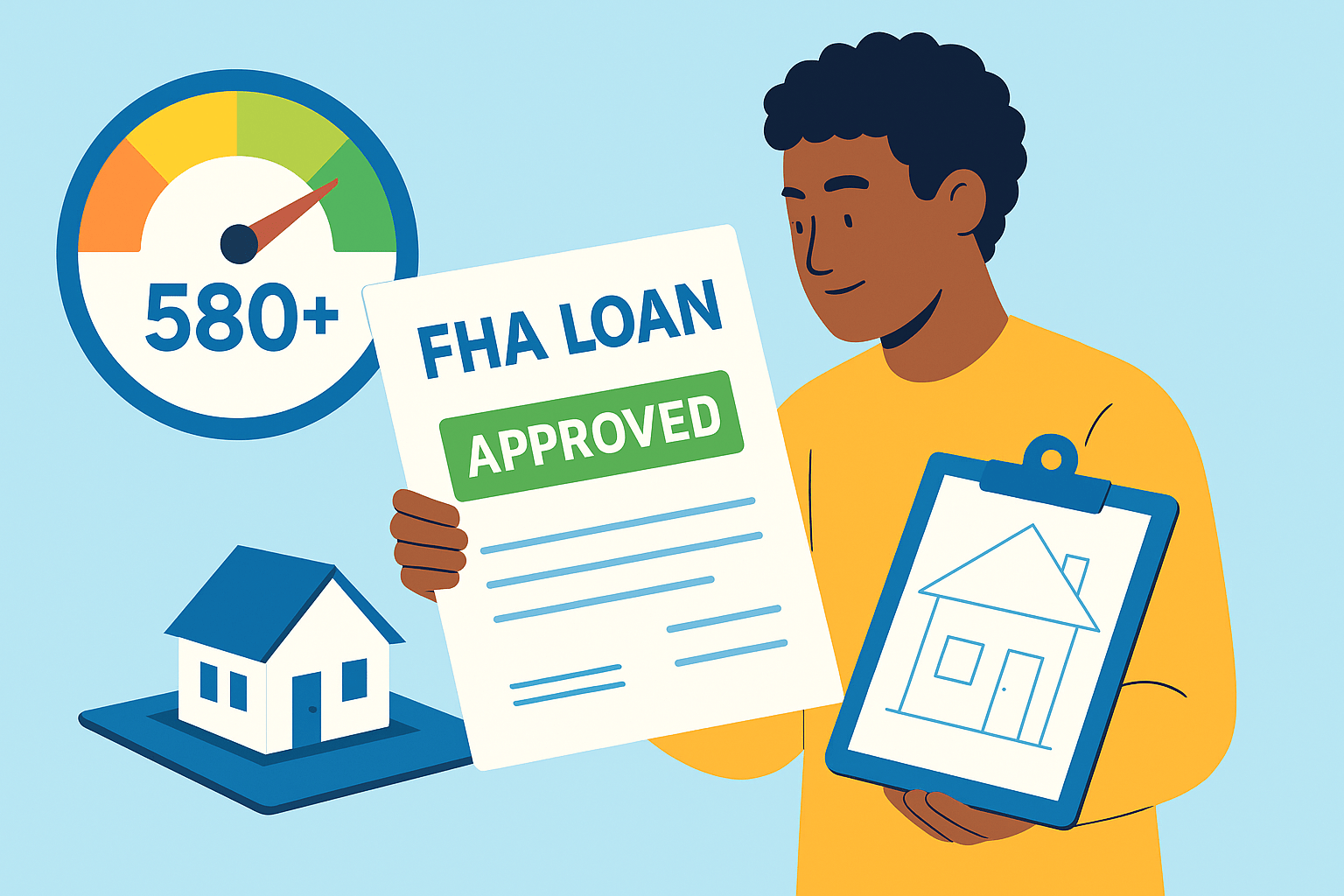Mortgage Credit Certificate First-Time Homebuyer Assistance Programs
Mortgage Credit Certificate: South Carolina’s Hidden Gem for First-Time Homebuyers
Buying your first home can feel like a high-wire act: one misstep and the budget topples. South Carolina’s Mortgage Credit Certificate (MCC) program stretches your safety net by turning a slice of your annual mortgage interest into a dollar-for-dollar federal tax credit. In plain English, more money stays in your pocket—just when you need it most.
Quick Snapshot of the South Carolina MCC
- Administered by: SC Housing
- Tax savings: Up to $2,000 per year for the life of your mortgage
- Works with most 30-year fixed-rate loans, including FHA, VA, USDA & conventional
- Available statewide; income and purchase-price caps apply
Why let the IRS take more than its fair share? The Mortgage Credit Certificate program allows qualifying South Carolinians to redirect tax dollars toward principal reduction, remodeling projects, or simply a rainy-day fund. Let’s unpack the details.
What Is a Mortgage Credit Certificate?
At its core, an MCC is a federal tax credit tied to your mortgage interest. When SC Housing issues an MCC, you may claim up to 50% of the interest you pay each year—capped at $2,000—as a direct credit against your tax bill. Unlike a deduction, which merely lowers taxable income, a credit slices the actual amount you owe Uncle Sam.
Consider a $250,000 loan at 6%. Year one interest hovers near $15,000. With a 50% MCC rate, you could claim a $2,000 credit and still deduct the remaining $13,000. That’s $2,000 less tax liability—every single year the loan is outstanding, provided you occupy the home.
How Does the MCC Work in South Carolina?
The Mechanism in Two Steps
- Certificate Issuance. You apply for the MCC through an SC Housing-approved lender before closing. The lender bundles the paperwork with your mortgage package.
- Annual Tax Filing. Each year you file IRS Form 8396 to claim your credit. If the credit exceeds your tax liability, you can carry the remainder forward up to three years.
The MCC doesn’t change your monthly mortgage payment directly, but smart borrowers use the annual tax refund bump to make extra principal payments. A Columbia-based study group at Benedict College found that buyers who reinvest MCC savings shaved an average of 3.8 years off a 30-year loan—an insight rarely spotlighted on page one of Google.
Who Qualifies for South Carolina’s MCC Program?
Eligibility revolves around three pillars: first-time status, income limits, and purchase-price caps. “First-time” means no ownership interest in a principal residence during the past three years, unless you’re purchasing in a federally designated Targeted Area or you’re a qualified veteran.
Current 2024 Income & Price Caps (Select Counties)
| County | 1-2 Person Income | 3+ Person Income | Purchase-Price Limit |
|---|---|---|---|
| Greenville | $99,000 | $113,850 | $395,000 |
| Richland | $98,560 | $113,344 | $381,250 |
| Horry | $95,920 | $110,308 | $372,600 |
SC Housing updates limits annually, so verify numbers with your lender.
Is the Mortgage Credit Certificate Worth It?
Short answer: usually, yes. But numbers speak louder than words.
Sample Savings Over Five Years
- Loan: $250,000 at 6% fixed
- Annual interest (year 1): ≈ $15,000
- MCC rate: 50% (max $2,000)
- Total five-year credit: $10,000
- Potential interest deduction preserved: $60,000+
Combine the $10,000 in credits with systematic principal prepayments, and you could accumulate roughly $14,600 in equity according to a simulation run with the open-source AmortCalc tool.
Granted, there’s an up-front fee—lenders typically charge $500–$750 to process the certificate—but the breakeven point often hits within the first tax season. Unless you foresee selling in the near term, the MCC acts like a perennial coupon clipped to your mortgage statement.
Case Study: Emily’s Leap from Renting to Owning
Emily, a 27-year-old middle-school teacher from Spartanburg, earned $48,000 in 2023. Rising rents devoured her paycheck. After hearing about the Mortgage Credit Certificate from a colleague, she met with an SC Housing lender. Emily purchased a $210,000 townhome with a 5.9% FHA loan.
Year one interest: about $12,000. Her MCC delivered the full $2,000 tax credit, lowering her federal bill to $0 and generating a modest refund. She applied the refund toward principal and knocked eleven payments off her amortization schedule. “It felt like I’d discovered a hidden lever in the system,” she said. The story underscores how ordinary buyers can leverage tax policy for generational impact.
People Also Ask
Can I combine the MCC with down-payment assistance in South Carolina?
Yes. The MCC pairs seamlessly with SC Housing’s Palmetto Home Advantage down-payment assistance, USDA 100% financing, and even VA loans. Lenders simply layer the products: the grant covers your upfront cash, while the MCC shaves future taxes. Just remember, stacking programs may lengthen underwriting by a week, so start early and keep documentation handy.
What happens if I refinance or sell my home?
If you refinance, you’ll need to re-issue—or “re-cast”—the certificate through your new lender; modest re-issue fees apply. Selling within nine years may trigger a federal recapture tax, but SC Housing reports that less than 1.1% of participants actually pay it, thanks to generous income growth exemptions. In many cases, the long-term credits outweigh potential recapture costs.
The MCC Application Roadmap
- Choose an approved lender. SC Housing publishes a roster; interview at least two for cost comparisons.
- Secure pre-approval. Provide income, asset, and credit documentation.
- Execute the purchase contract. Ensure the closing date leaves at least 15 business days for certificate processing.
- Close & record. Sign MCC documents alongside mortgage papers.
- File Form 8396 annually. Keep a folder with year-end mortgage statements for easy reference.
Pro tip: Ask your HR department to adjust withholding. That way, the MCC credit boosts monthly take-home pay instead of arriving as an April windfall.
Benefits Beyond the Obvious
- Loan Qualification Boost. Lenders may count the estimated annual credit as additional income, increasing purchase power by roughly $15,000–$20,000.
- Portability Within the State. Move to a new job in Charleston? Re-issue the certificate if you refinance rather than start from scratch.
- Inflation Shield. The credit value may grow as interest payments gradually decline but remain significant during early, high-interest years.
- Budget Predictability. Knowing a chunk of tax liability disappears each year aids long-term planning.
Frequently Asked Questions
- Does the Mortgage Credit Certificate replace the mortgage interest deduction?
- No. You still deduct the remaining interest after subtracting the credit, maximizing total tax savings.
- Is the MCC available to repeat buyers?
- Yes, in federally targeted areas or if you’re a veteran using VA financing. Otherwise, you must be a first-time buyer.
- Can I use the MCC with an adjustable-rate mortgage?
- Only if the ARM is fixed for at least three years; most lenders stick to 30-year fixed loans for simplicity.
- What credit score is required?
- SC Housing defers to the underlying loan program, typically 620+ for FHA and 640+ for conventional.
- Is there an MCC for new construction?
- Yes, as long as the home meets purchase-price limits and you occupy it within 60 days of closing.
Your Next Steps: Put Tax Dollars Back in Your Wallet
Sifting through mortgage options can feel like navigating Congaree National Park without a compass. The Mortgage Credit Certificate is that compass—quietly guiding you toward thousands in savings. Ready to see how much you could keep? Reach out to an SC Housing-approved lender today, fine-tune your budget, and set the closing date into motion.
Looking for tailored advice? Our team partners with local lenders, real estate agents, and tax preparers to map out the optimal route from pre-approval to filing Form 8396. Schedule a free 15-minute consultation and start stacking the odds—and the tax credits—in your favor.
Suggested URL slug: /south-carolina-mortgage-credit-certificate-guide
Explore More Blog Posts
Checkout more similar posts those will help you to choose better property.












 Profile
Profile Password
Password Saved Properties
Saved Properties Sign Out
Sign Out
 +0.01
+0.01
 -0.15
-0.15

